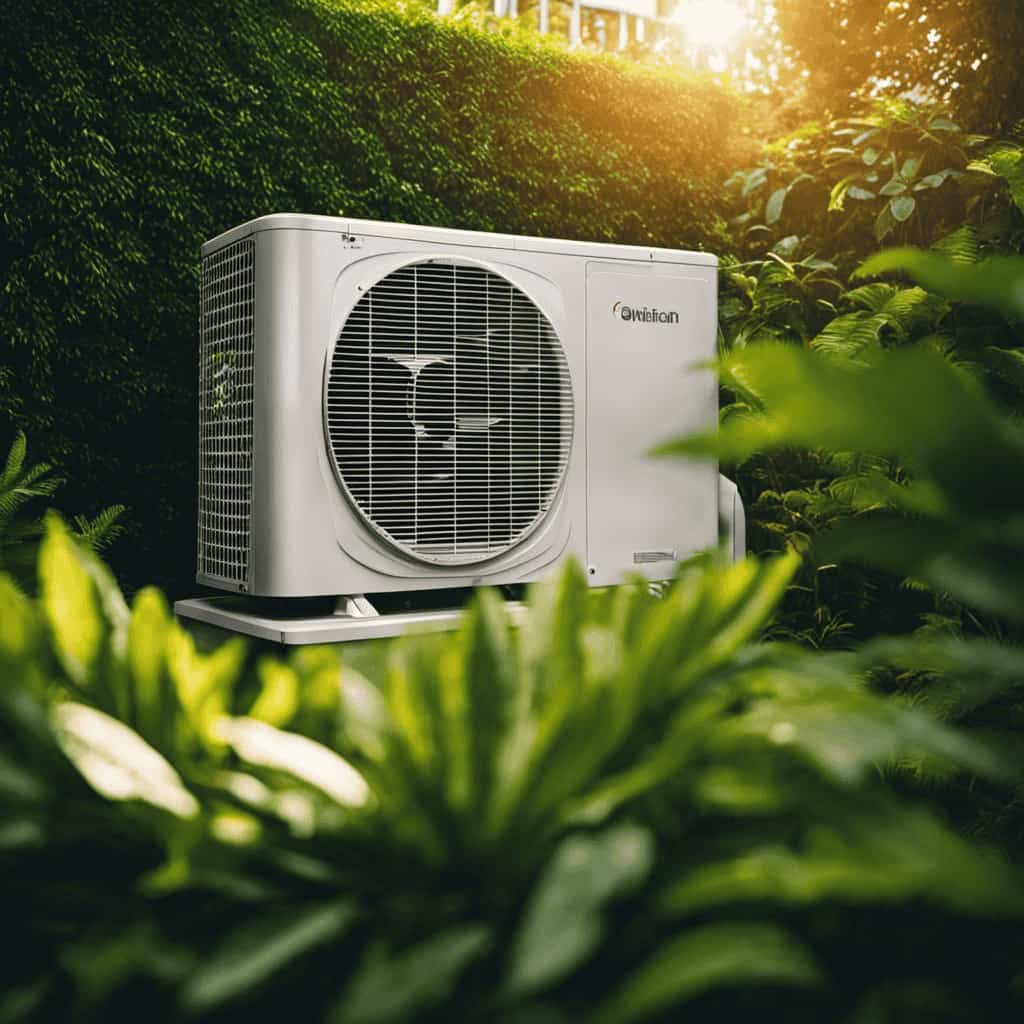As property owners, our goal is to enhance the effectiveness of our heat pumps as the seasons shift. By grasping the nuances of Seasonal Performance Factors and adjusting our configurations to match, we can achieve the best performance all year long.
It is crucial to maintain proper refrigerant levels and implement regular maintenance for long-term efficiency. Additionally, utilizing smart thermostat features and exploring supplemental heating and cooling options can further enhance our heat pump’s efficiency.
In this article, we will delve into these strategies to serve you in maximizing your heat pump’s efficiency across seasonal shifts.
Key Takeaways
- Seasonal energy consumption and outdoor temperature greatly impact heat pump efficiency.
- Properly sized and insulated homes, regular maintenance, and energy-saving settings contribute to optimal performance.
- Adjusting thermostat settings based on outdoor temperature and desired indoor comfort level can optimize efficiency.
- Regular maintenance practices, such as monitoring refrigerant levels and scheduling inspections, are crucial for long-term efficiency and extending the heat pump’s lifespan.
Understanding Seasonal Performance Factors
We’ll explore the key factors that affect the seasonal performance of heat pumps.
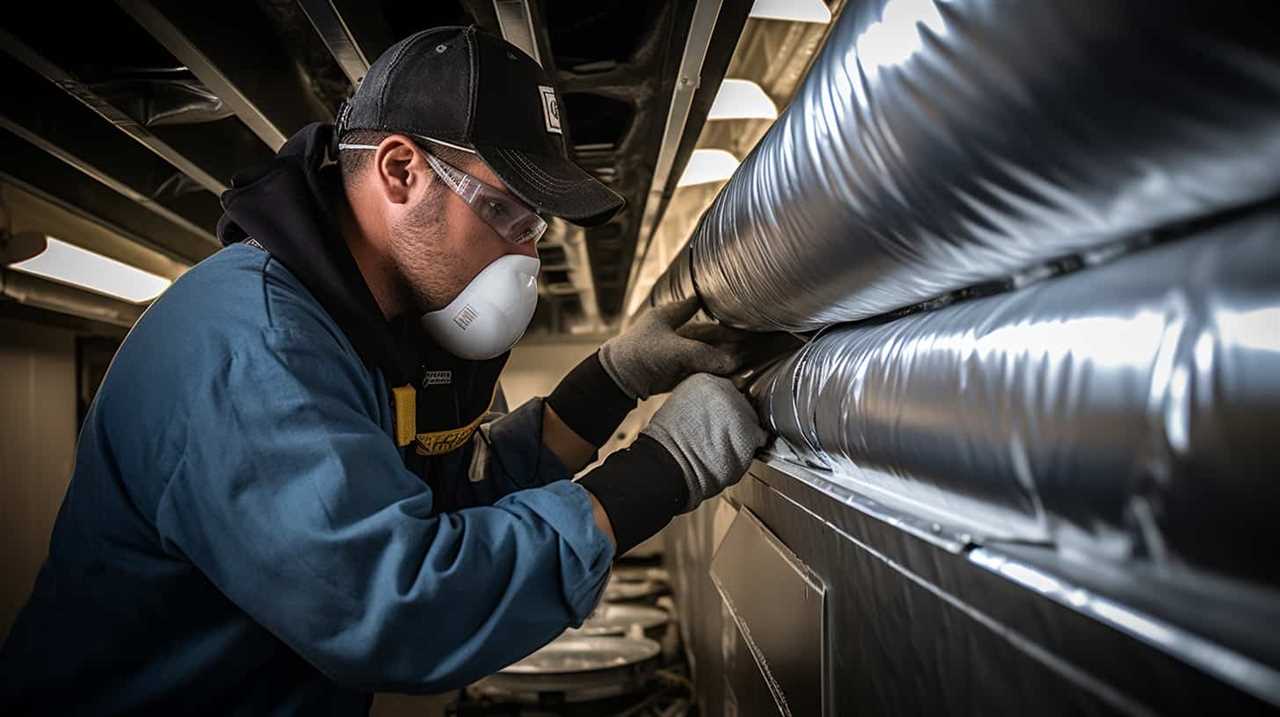
One crucial factor is seasonal energy consumption. Heat pumps consume different amounts of energy depending on the season. During colder months, heat pumps need to work harder to extract heat from the outdoor air, resulting in higher energy consumption.
Another factor that affects heat pump efficiency is the outdoor temperature. As the temperature drops, the heat pump’s ability to extract heat decreases, leading to reduced efficiency.
Additionally, the size and insulation of the home play a significant role. A properly sized heat pump that’s well-insulated will operate more efficiently, as it can heat or cool the space effectively without exerting excessive energy.
Other factors include the maintenance and regular servicing of the heat pump, as well as the use of programmable thermostats and energy-saving settings.
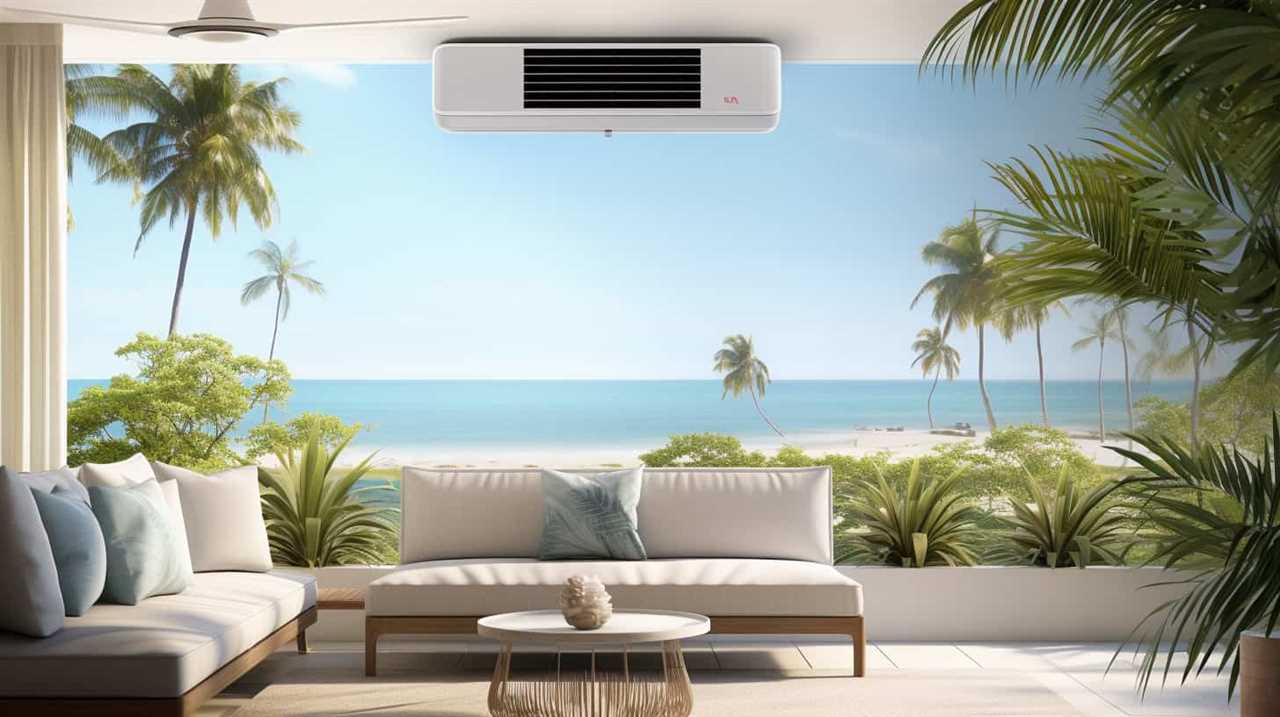
Understanding these factors is essential for optimizing the performance of heat pumps and reducing energy consumption.
Optimizing Heat Pump Settings for Different Seasons
To optimize heat pump settings for different seasons, we must consider the outdoor temperature and the desired indoor comfort level. By adjusting the thermostat settings, we can ensure optimal energy consumption and maintain a comfortable environment throughout the year.
| Season | Outdoor Temperature | Recommended Thermostat Setting |
|---|---|---|
| Winter | Below freezing | 68°F |
| Spring | Mild to cool | 72°F |
| Summer | Hot | 78°F |
| Fall | Mild to cool | 72°F |
During winter, when outdoor temperatures drop below freezing, it is recommended to set the thermostat at 68°F to maintain a cozy indoor temperature. In spring and fall, when the weather is mild, a thermostat setting of 72°F is generally sufficient. For hot summer days, it is advisable to set the thermostat at 78°F to balance comfort and energy consumption.
Maintaining Proper Refrigerant Levels for Maximum Efficiency
Our team ensures that we maintain proper refrigerant levels for maximum efficiency in our heat pump systems.

Proper refrigerant levels play a crucial role in the performance and longevity of heat pumps. Refrigerant leakage prevention is a key aspect of maintaining these levels. Regular inspections and maintenance procedures are implemented to identify and repair any potential leaks. This helps to conserve the refrigerant and prevent any negative impact on the system’s efficiency.
Additionally, refrigerant level monitoring is carried out to ensure that the heat pump operates within optimal parameters. This involves measuring and adjusting the refrigerant levels to maintain the manufacturer’s recommended specifications.
Implementing Regular Maintenance for Long-Term Efficiency
Regular maintenance is crucial for maximizing the long-term efficiency of heat pumps. By scheduling regular maintenance, we can ensure that the heat pump is operating at peak performance, minimizing energy consumption and reducing operating costs.
Additionally, regular maintenance helps to extend the lifespan of the heat pump, reducing the need for costly repairs or replacements.

Importance of Scheduled Maintenance
We believe in the importance of implementing scheduled maintenance for long-term efficiency of heat pumps. Regular maintenance helps to ensure that heat pumps are operating at their peak performance and can provide optimal heating and cooling throughout the year. Here are some key benefits of scheduling regular maintenance for heat pumps:
-
Increased Efficiency: Regular maintenance helps to keep heat pumps clean and free from debris, allowing them to operate more efficiently and effectively.
-
Extended Lifespan: By addressing any potential issues early on and performing necessary repairs or replacements, scheduled maintenance can help to prolong the lifespan of heat pumps.
-
Energy Savings: A well-maintained heat pump consumes less energy, resulting in lower utility bills and reduced carbon footprint.
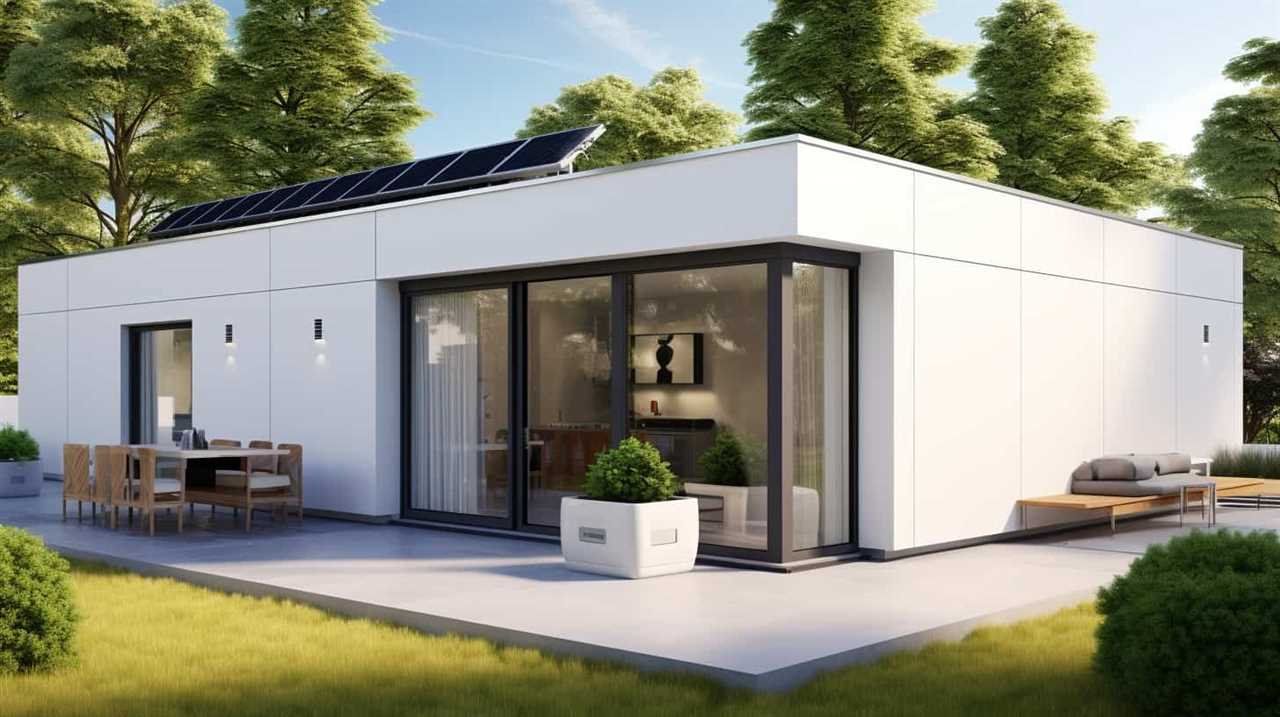
-
Improved Indoor Air Quality: Regular maintenance includes cleaning or replacing air filters, which helps to improve indoor air quality by removing dust, allergens, and pollutants.
Extending Heat Pump Lifespan
To ensure long-term efficiency, we recommend implementing regular maintenance practices to extend the lifespan of heat pumps. By following a comprehensive maintenance plan, homeowners can increase the durability of their heat pumps and prolong their lifespan.
Regular maintenance includes tasks such as cleaning or replacing air filters, inspecting and cleaning the outdoor unit, checking refrigerant levels, and lubricating moving parts. These maintenance practices help to optimize the performance of the heat pump and prevent potential issues that could lead to costly repairs or premature failure.
It’s important to schedule maintenance at least once a year, ideally before the start of the heating or cooling season. By investing in regular maintenance, homeowners can maximize the lifespan of their heat pumps and enjoy efficient and reliable heating and cooling for years to come.
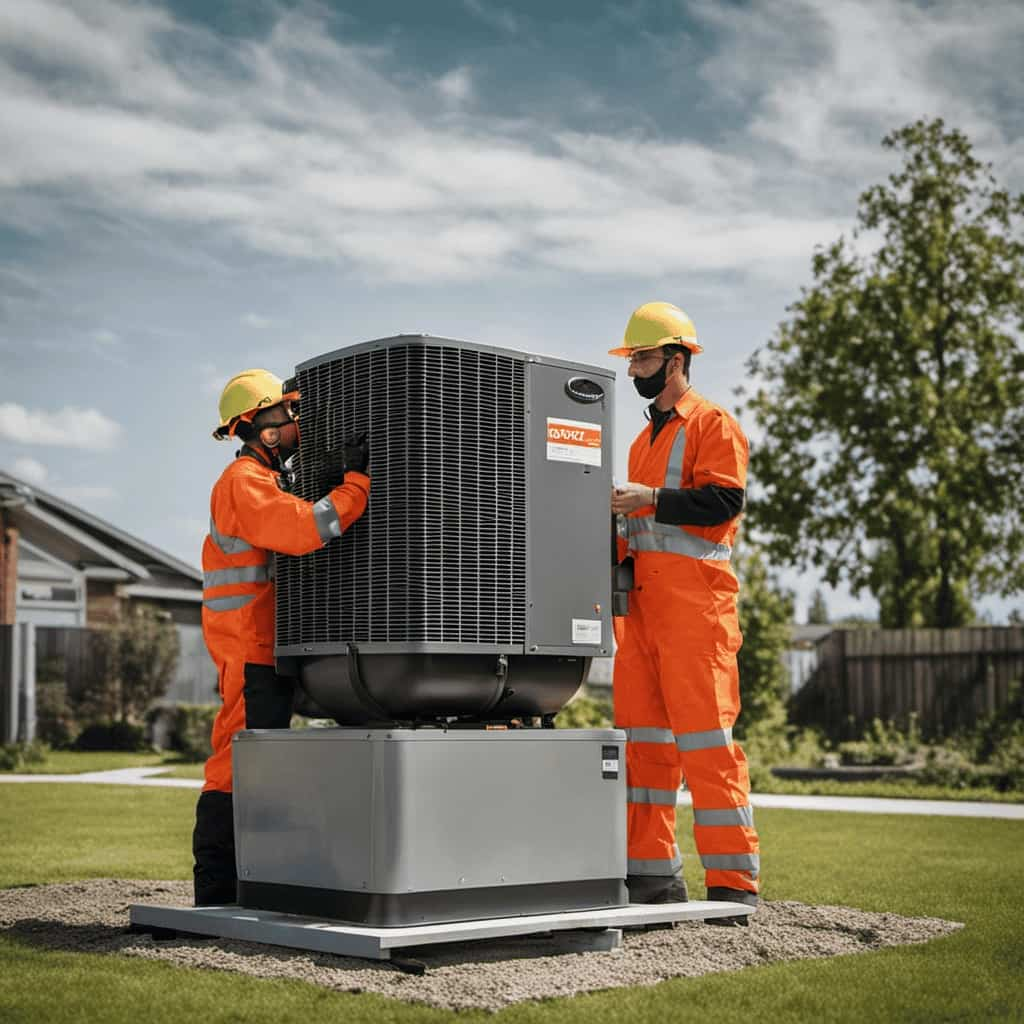
Utilizing Smart Thermostat Features to Enhance Efficiency
By utilizing smart thermostat features, we can enhance the efficiency of our heat pump system. Smart thermostats offer advanced programming options and energy-saving tips that can help us optimize the performance of our heat pump throughout the year.
Here are four ways smart thermostat features can improve heat pump efficiency:
-
Customized scheduling: Smart thermostats allow us to create personalized schedules based on our daily routine. By programming the thermostat to adjust the temperature according to our occupancy patterns, we can avoid unnecessary heating or cooling, reducing energy waste.
-
Remote access and control: With smart thermostats, we can remotely monitor and adjust the temperature settings using our smartphones or tablets. This feature enables us to turn off the heat pump when we’re away or make temperature adjustments before returning home, maximizing energy efficiency.

-
Learning capabilities: Some smart thermostats have the ability to learn our preferences and automatically adjust the temperature accordingly. This feature eliminates the need for manual programming and ensures optimal comfort while minimizing energy consumption.
-
Integration with other smart devices: Smart thermostats can be integrated with other smart devices, such as occupancy sensors or weather forecasts. By utilizing these integrations, the thermostat can make more informed decisions about temperature adjustments, improving energy efficiency.
Exploring Supplemental Heating and Cooling Options
As we explore supplemental heating and cooling options, it is important to consider the efficiency and compatibility of these systems with our heat pump. To help you make an informed decision, let’s take a closer look at some of the options available.
| Supplemental Heating Options | Energy Efficiency Rating | Supplemental Cooling Options |
|---|---|---|
| Electric Space Heaters | Moderate | Ceiling Fans |
| Gas Furnaces | High | Evaporative Coolers |
| Radiant Floor Heating | Very High | Window Air Conditioners |
| Heat Pumps | Extremely High | Portable Air Conditioners |
| Geothermal Heat Pumps | Exceptional | Ductless Mini-Split Systems |
When it comes to supplemental heating, gas furnaces and radiant floor heating tend to be more energy efficient compared to electric space heaters. However, heat pumps and geothermal heat pumps offer the highest level of efficiency. For cooling, ceiling fans and evaporative coolers are cost-effective options, while window air conditioners and portable air conditioners provide more targeted cooling. Ductless mini-split systems are also a popular choice for energy efficient cooling. By considering the supplemental heating costs and energy efficient cooling options, you can maximize the efficiency of your heat pump system.

Frequently Asked Questions
Can I Use My Heat Pump as a Standalone Heating and Cooling System Throughout the Year?
Yes, we can use a heat pump as a standalone heating and cooling system throughout the year. However, it is important to consider the seasonal heat pump efficiency to maximize its performance and energy savings.
Are There Any Specific Temperature Ranges at Which a Heat Pump Is Most Efficient?
In terms of heat pump efficiency, there are specific temperature ranges that are most optimal. By understanding these ranges, we can maximize the performance of our heat pump throughout the year.
How Often Should I Check and Adjust the Refrigerant Levels in My Heat Pump?
We check and adjust refrigerant levels in our heat pump regularly to optimize heat pump efficiency. This maintenance ensures proper refrigerant flow and prevents potential issues that can decrease performance and efficiency.
Are There Any Specific Maintenance Tasks I Should Perform Regularly to Ensure My Heat Pump Operates at Maximum Efficiency?
Regular maintenance tasks are crucial to ensuring our heat pump operates at maximum efficiency. By performing tasks such as cleaning filters, checking electrical connections, and lubricating moving parts, we can optimize heat pump performance and save energy.
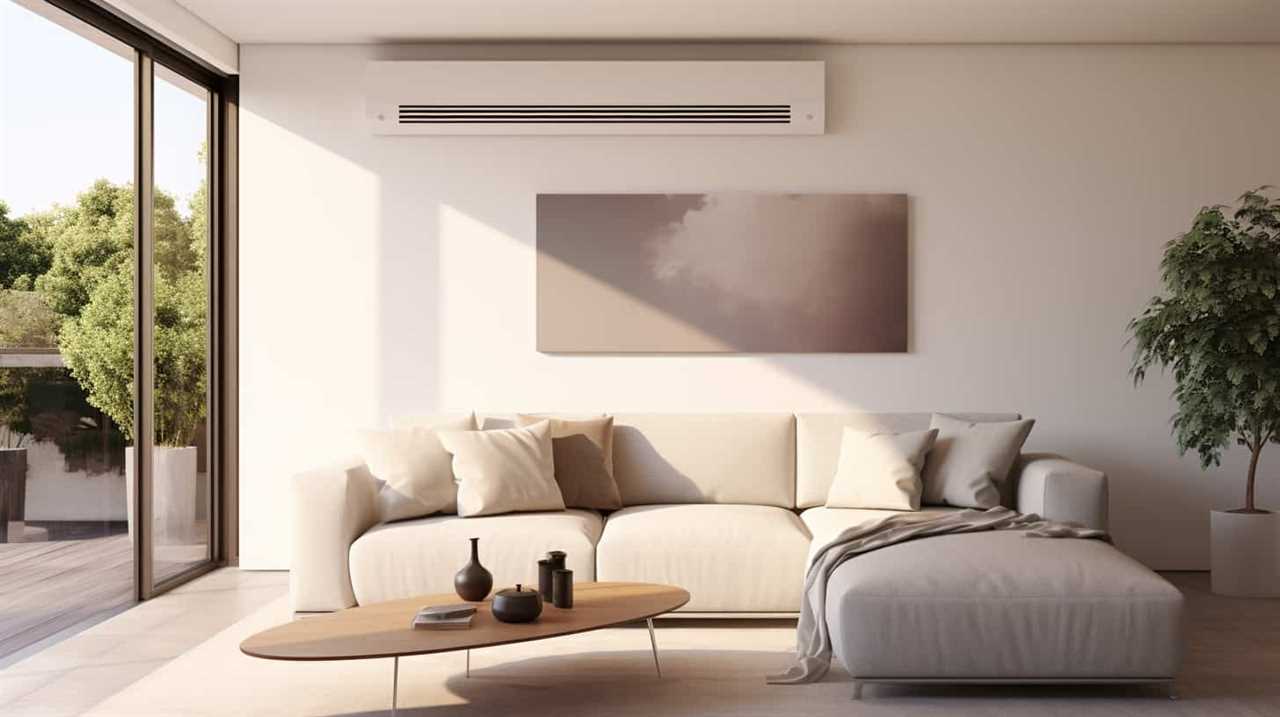
How Can I Use Smart Thermostat Features to Optimize the Efficiency of My Heat Pump?
We can optimize the efficiency of our heat pump by utilizing smart thermostat features. By programming the thermostat to adjust temperatures based on occupancy and weather conditions, we can save energy and maximize efficiency.
Conclusion
In conclusion, by understanding seasonal performance factors, optimizing heat pump settings, and maintaining proper refrigerant levels, we can maximize heat pump efficiency across seasonal shifts.
Implementing regular maintenance, utilizing smart thermostat features, and exploring supplemental heating and cooling options are also important strategies.
This research-based approach ensures that our heat pump operates at its peak performance, saving energy and reducing costs throughout the year.

With these strategies in place, we can confidently rely on our heat pump to provide efficient heating and cooling solutions, regardless of the season.


